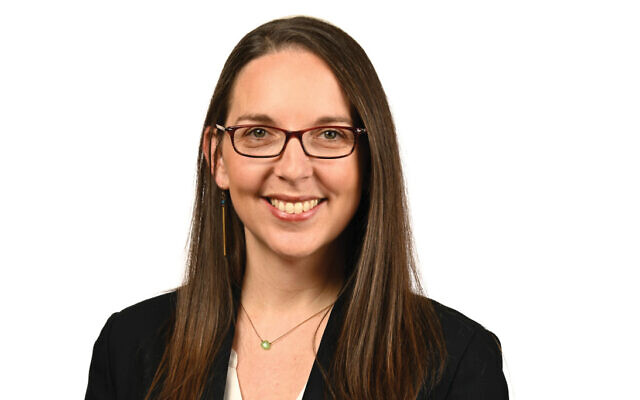Rabbi Lydia Bloom Medwin
Rabbi Lydia Bloom Medwin shares her Passover thoughts with you.
In my daughter’s room hangs a poster with a quote on it, and the quote reads: The important thing is to not stop questioning. Curiosity has its own reason for existing. Although this is a famous quote by Albert Einstein, the graphic on the page shows a girl, sitting amongst a bunch of bored looking students, raising her hand like Hermione from Harry Potter, about to jump out of her chair.
This is the attitude we are supposed to adopt during this season of Passover. This kind of zealous question-asking is an absolutely essential part of what it means to be Jewish and what it means to celebrate this most-beloved of all holidays. In fact, in the Talmud tractate Pesachim, it says that if there are only two people at a seder, and both of them are completely brilliant Torah scholars and know everything there is to know about the seder, one must ask the other questions. Then it goes on to say that, even if one is alone, one must ask questions to him or herself!
This brilliant didactic move on the part of our sages continues to challenge and benefit us today. Because it says to us: Question asking is not just about learning facts. Question asking is also about uncovering the breadth and depth of our reality, both the ugly and the resplendent. Curiosity is an exercise in sewing the very fabric of our universe, and its produce is life itself, in all of its abundance. It is literally about creating new possibilities and figuring out ways to dive into those possibilities.
Today, there are things that are true this Passover that have never before been so. And this disruption actually gifts us with the opportunity to ask even more, even deeper questions, such as: How do hungry school children get fed when school is out for months and no one can go near them? And why do we have hungry children in Atlanta in the first place? And what is spiritually happening to all of us in our journey towards freedom, when so many are trapped in Georgia’s fields and orchards, harvesting the very food we eat daily, while they themselves risk their health and the health of their families? What is the Pharaoh inside us all that allows for the great chariot drivers who deliver food to our doorsteps to remain without protective gear as they battle for us to stay well? What is this plague, the 11th in our count, which takes not the young but the elderly? Is it the result of holding our planet as a slave to do our bidding without end? Is this COVID like the bitter wail of the Israelites, the planet crying out to be freed from bondage?
This year serves to highlight so many of the problems that already faced our state. May we use this time to ask not just four questions, but many, many questions, because our curiosity has many reasons for existing, and one of them is to make our world a more compassionate and peaceful and freedom-filled place for all who inhabit this earth.
Rabbi Lydia Bloom Medwin is director of congregational engagement and outreach at The Temple.




comments